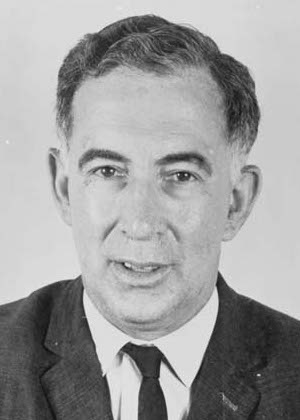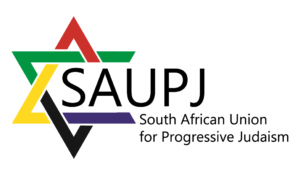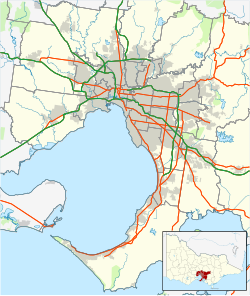
Sir Zelman Cowen, was an Australian legal scholar and university administrator who served as the 19th Governor-General of Australia, in office from 1977 to 1982.
The history of Jews in Australia traces the history of Australian Jews from the British settlement of Australia commencing in 1788. Though Europeans had visited Australia before 1788, there is no evidence of any Jewish sailors among the crew. The first Jews known to have come to Australia came as convicts transported to Botany Bay in 1788 aboard the First Fleet that established the first European settlement on the continent, on the site of present-day Sydney.

The World Union for Progressive Judaism (WUPJ) is the international umbrella organization for the various branches of Reform, Liberal and Progressive Judaism, as well as the separate Reconstructionist Judaism. The WUPJ is based in 40 countries with 1,275 affiliated synagogues, of which 1,170 are Reform, Progressive, or Liberal and 105 Reconstructionist. It claims to represent a total of some 1.8 million people, both registered constituents and non-member identifiers. The WUPJ states that it aims to create common ground between its constituents and to promote Progressive Judaism in places where individuals and groups are seeking authentic, yet modern ways of expressing themselves as Jews. It seeks to preserve Jewish integrity wherever Jews live, to encourage integration without assimilation, to deal with modernity while preserving the Jewish experience, and to strive for equal rights and social justice.

The Jewish Museum of Australia, not to be confused with the Sydney Jewish Museum, aims to "explore and share the Jewish experience in Australia". It is located in St Kilda, a suburb of Melbourne.

Judaism is a minority religion in Australia. 99,956 Australians identified as Jewish in the 2021 census, which accounts for about 0.4% of the population. This is a 9.8% increase in numbers from the 2016 census.
Beth Israel Congregation is a Reform Jewish congregation and synagogue located at 5315 Old Canton Road in Jackson, Mississippi, in the United States. Organized in 1860 by Jews of German background, it is the only Jewish synagogue in Jackson. Beth Israel built the first synagogue in Mississippi in 1867, and, after it burned down, its 1874 replacement was at one time the oldest religious building in Jackson.
Congregation Am Tikvah is a combined Conservative and Reform Jewish congregation and synagogue located at 625 Brotherhood Way in San Francisco, California, in the United States. The congregation was formed in 2021 as the result of the merger of the Conservative B'nai Emunah and the Reform Beth Israel Judea congregations, with the latter formed in 1969 through a merger of the Conservative Congregation Beth Israel and the Reform Temple Judea. The congregation is affiliated with both the Union for Reform Judaism and the United Synagogue of Conservative Judaism.

The Melbourne Hebrew Congregation, or Toorak Shule, is the oldest Jewish congregation in Melbourne, Victoria, Australia. Formed in 1841, the congregation was originally located on Bourke Street before moving in 1930 to Toorak Road, South Yarra.

Australian Jews, or Jewish Australians, are Jews who are Australian citizens or permanent residents of Australia. In the 2021 census there were 99,956 people who identified Judaism as their religious affiliation and 29,113 Australians who identified as Jewish by ancestry, an increase from 97,355 and 25,716, respectively, from the 2016 census. The actual number is almost certainly higher, because being a Jew is not just about being religious, but the census data is based on religious affiliation, so secular Jews often feel it would be inaccurate to answer with "Judaism". Also, since the question is optional, many practising Holocaust survivors and Haredi Jews are believed to prefer not to disclose their religion in the census. By comparison, the Israeli newspaper Haaretz estimated a Jewish-Australian population of 120,000–150,000, while other estimates based on the death rate in the community estimate the size of the community as 250,000, which would make them 1% of the population. Based on the census data, Jewish citizens make up about 0.4% of the Australian population. The Jewish community of Australia is composed mostly of Ashkenazi Jews, though there are Jews in Australia from many other traditions and levels of religious observance and participation in the Jewish community.
Karen Soria is an American-born rabbi. She became the first female rabbi to serve in Australia when she joined the rabbinical team at Temple Beth Israel, a progressive Reform Jewish synagogue in Melbourne, in the 1980s. She later served as a chaplain for the U.S. Marines and the U.S. Navy; she was the first woman rabbi to serve in this capacity for the Marines, and the second in the Navy. After moving to Canada, she became the first woman rabbi to serve as a chaplain with the Canadian Forces.

Adath Shalom was a Conservative synagogue located at 607 W Ritner Street, in the Whitman neighborhood of South Philadelphia, Pennsylvania, in the United States. The synagogue opened in 1922 and closed in 2007.
The Melbourne Beth Din (MBD) is an Orthodox / Chassidic Jewish court in the city of Melbourne, Australia. Located in Caulfield North, Victoria, it rules mostly on divorces and conversions although it does rule on other matters as well.
The Temple Israel is a Progressive Jewish congregation and synagogue, located in Hillbrow, a suburb of Johannesburg, in the district of Gauteng, South Africa. Designed by Hermann Kallenbach in the Art Deco style, the synagogue was completed in 1936 and is the oldest of eleven Progressive synagogues in South Africa. The synagogue is classified as a provincial heritage site. The congregation is affiliated with the South African Union for Progressive Judaism (SAUPJ), which is part of the World Union for Progressive Judaism (WUPJ).

The South African Union for Progressive Judaism (SAUPJ) is an affiliate of the World Union for Progressive Judaism and supports 11 progressive congregations. Rabbi Moses Cyrus Weiler, a founder of Reform Judaism in the country, led the country's first Reform synagogue, Temple Israel in Hillbrow, Johannesburg. Weiler is credited with growing the movement, to represent 15-17% of South African Jewry and establishing 25 congregations in the country. A 2020 joint study by the Institute for Jewish Policy Research and the University of Cape Town showed that 12% of Jews identified as Progressive and that in relative terms the progressive strands are increasing after falling to 7% in 1998 and 2005 studies. In Johannesburg, the community accounts for 7% of the city's Jewry, rising to 18% in Cape Town and 25% in Durban.
The Temple Israel, also known as the Cape Town Progressive Jewish Congregation (CTPJC), is a Progressive Jewish congregation, located in Cape Town, with three synagogues located in each of Green Point, Wynberg and Milnerton, in the Western Cape region of South Africa. As three centres combined, they are the largest Progressive congregation in South Africa, and the second largest Jewish congregation in Cape Town after Marais Road Shul in Sea Point.

The Union for Progressive Judaism is an affiliate of the World Union for Progressive Judaism and supports 27 progressive congregations in Australia, New Zealand and Asia. The movement serves about a fifth of the region's affiliated community. The UPJ is represented on the major communal bodies in Australia, such as the Executive Council of Australian Jewry, the Zionist Federation of Australia (ZFA) and Zionism Victoria.
Rabbi John Simon Levi is an Australian Progressive rabbi and author. Upon ordination in 1960, he began serving Melbourne's Temple Beth Israel. He became senior rabbi of the congregation from 1974 until 1997, when he became rabbi emeritus. He is also the founder of Melbourne's King David School.
Beth Shalom is a Progressive Jewish congregation and synagogue, located in Auckland, New Zealand. It is the largest progressive congregation in the country. The congregation was started in 1952 and later a temple was constructed and consecrated in 1960. It is a member of the Union for Progressive Judaism. The congregation has over 500 members, hosts a Hebrew school, and also has a burial society.








